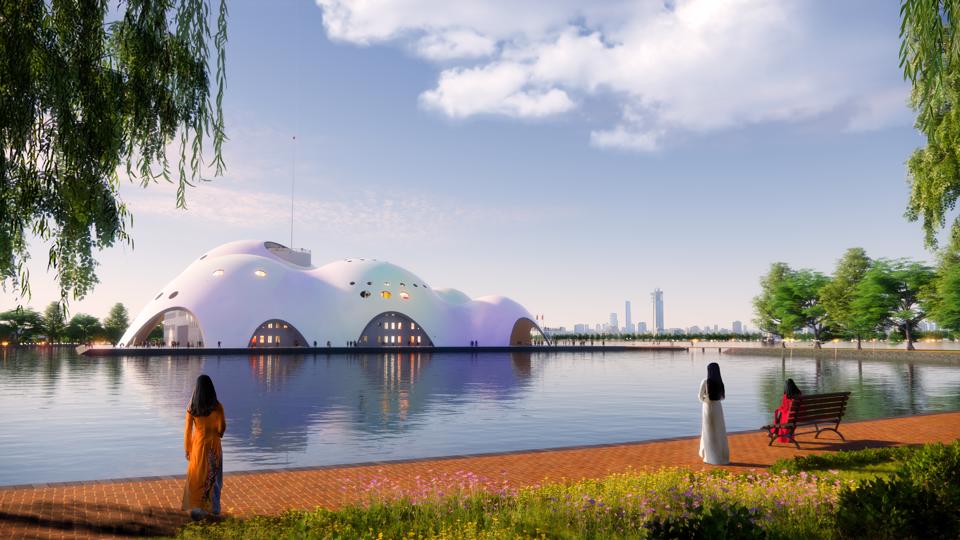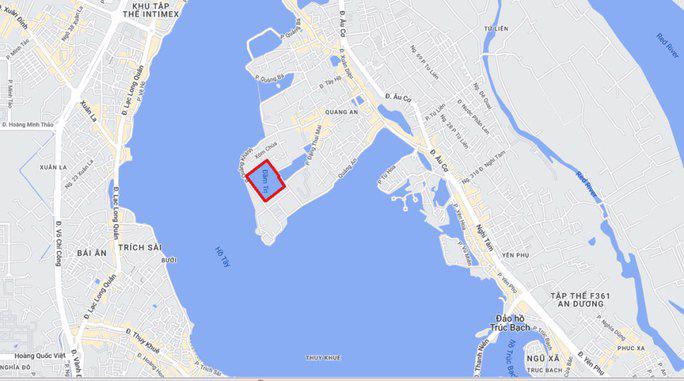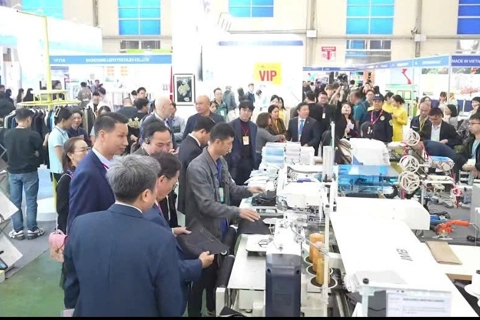Opera House to be a focal point for Hanoi
The Hanoi Opera House will not only preserve cultural values that have survived over time in the capital city but also build an advanced culture, approaching the quintessential values of the world.
An international-class floating Opera House will be likely built in Dam Tri Lake, close to West Lake, making it a highlight in Quang An Peninsula in Tay Ho District, Hanoi.
The Opera House, designed as a hub of cultural activities of the capital city, is part of the 1/500 planning project of Quang An Peninsula that has sparked a public opinion controversy after it was introduced to the public recently.
According to local authorities, the scale of the planning area is 45ha, affecting about 3,500 local residents, mainly in Quang An and Tu Lien wards. The boundary scope of the 1/500 detailed planning includes the Northeast borders on Xuan Dieu Street, the Northwest on the land area along Dang Thai Mai Road and adjacent to Thuy Su Lake, the Southwest faces the West Lake, and the Southeast borders Tay Ho villa area.
The main objectives of the project are to build trade and services centers and hotels for tourism and connect urban underground spaces, and underground car parks with the general infrastructure network across the city, in addition to upgrading the traffic infrastructure system and protecting the ecological environment in the West Lake and surrounding areas.
The question now is if the Opera House is really necessary for Hanoi in its renovation process in the modern era.
Opera House – a cultural significance of Hanoi
| Hanoi Opera House was designed by Renzo Piano, 85, an Italian architect who is one of the “big trees” of modern world architecture. |
Under the project, the Opera House will be built with funds from various sources, including private businesses. The design, construction, and operation process will be closely supervised.
The Opera House is designed in modern architecture, with a dome-shaped structure inspired by the waves of the West Lake. Located on a nearly 14,000 sqm area, the theatre has an opera room with more than 1,800 seats and many multi-purpose auditoriums for 1,000-2,000 seats each for large-scale art performance programs and events. It is expected to be a “music island” in the middle of the romantic West Lake scenery and a worthy theater – a new symbol of the capital city.
The construction will include dredging and cleaning the lake, ensuring it will not fill the lake and affect the surface of the lake water.
Associate Professor and Doctor Bui Hoai Son, Standing Member of the National Assembly's Committee on Culture and Education, told The Hanoi Times that the capital city has tailored many plans for the development of the cultural industry, aiming to become a cultural significance of Hanoi representing Vietnamese culture. Therefore, the city has issued resolutions and strategies for the development of cultural industries for Hanoi, which was recognized by UNESCO as a Creative City in 2019.
“To achieve those goals, desires and aspirations, Hanoi needs to do a lot of things, from the training of human resources commensurate with the cultural scale of the capital city to the organization of regional- and international-level events and activities, in which it needs cultural institutions to realize such purposes,” Son said.
Therefore, the Opera House project in Tay Ho District is one of the solutions to realize the goals and desires of Hanoi. This is necessary work in today's social context,” he added.
Hanoi has an Opera House built by the French more than 100 years ago, where some national events are organized. However, with a capacity of only nearly 900 people, this theater does not meet the increasing demand and is so small to organize large-scale international music festivals, which need large space and modern sound equipment.
Experts have said that due to a lack of large space, the capital city has missed many opportunities to organize international-level events to affirm its position and stature as the capital city of Vietnam.
| Quang An Peninsula is in the middle of West Lake. The location of Dam Tri Lake is marked with the red box. |
Prominent French-Vietnamese architect Ho Thieu Tri, who is renowned for his renovation of the current Hanoi Opera House many years ago, said that in his opinion, people should not rush to criticize art or architecture, because it's all just personal opinion.
“Each work has its own voice, has its own soul, and that's the enthusiasm, talent, and creativity of the architect as they make a mark not only for the land, for the country, but also sometimes for the whole world in the future,” Tri said.
He said a work that the whole world knows about is the Eiffel Tower. It was formerly built for international exhibitions in Paris, which was planned to be demolished after it was likened to “a steel structure like a giant monster” in the middle of a city full of stone works. “But today it attracts so many tourists, the economic efficiency is great, and becomes a phenomenon of the whole city and of France.”
“A project will often encounter many different opinions at the beginning, even when it is submitted to the review board, the views of each member are different. Therefore, the opposite reaction is inevitable, but the values of creativity and originality will be eternal values,” Tri said to The Hanoi Times.
Ngo Khiem, a resident living on Lac Long Quan Street, said he is very excited to hear about the Opera House project in Dam Tri Lake, close to West Lake. It will not only be a highlight of the capital city but also an entertainment destination for locals and visitors.
He said if the Opera House was built here, his children would have the opportunity to learn more about music and art performances, getting cultural values rather than immersing in games on computers and smartphones.
“The number of foreign visitors in the West Lake area is very large and stable because it has fresh air, open space, and beautiful scenery,” Khiem said.
I am happy to have another valuable tourist destination in the capital city, but what I am most concerned about are our environmental work and water surface protection. The work should be in harmony with the landscape during the process of planning and construction,” he added.
There are many cultural works in the world, in which opera houses have become symbols not only of a destination but also of a country, not only raising the level of destination, creating a position in the international arena for that country but also generating huge revenue for the destination's tourism industry.
China’s National Centre for the Performing Arts, which opened in 2007 and is colloquially described as The Giant Egg, used to face many controversies, but now, the theater successfully organizes up to 1,000 commercial performances, 1,000 art education sessions and attracts about three million visitors per year.
Sydney Opera House is a “masterpiece of 20th-century architecture” or a “world-famous architectural icon” that also welcomes nearly 11 million visitors each year, making it a symbol that when saying about Sydney or coming to Australia, people will immediately think of Sydney Opera in the shape of a scallop. Or like in Italy, the Parco della Musica Auditorium - a masterpiece of the legendary architect Renzo Piano, in 2017 alone, there were more than 730 events held here and 529,000 visitors.
These world-famous opera houses not only attract tourists and bring in huge revenue but are also beautiful places for art performances, making such countries become desired destinations for great artists in the world to affirm their imprints and names.
Hanoi Opera House was designed by Renzo Piano, 85, an Italian architect who is one of the “big trees” of modern world architecture.
It’s reported that he has spent 40 years researching thin-shell structural technology, which is expected to apply to the dome of the Hanoi Opera House for the first time. In the shape reminiscent of the waves on the surface of West Lake, the dome of the theater appears soft and poetic but still boldly contemporary.
It is expected that the Hanoi Opera House will not only preserve cultural values that have survived over time in the capital city but also build an advanced culture, approaching the quintessential values of the world.












